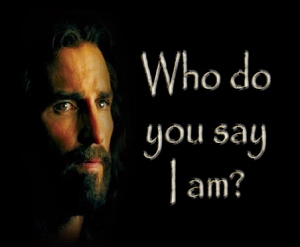
Many priests hear the following “My children won’t go to Sunday Mass anymore. They used to come with us, but now they refuse. We don’t know what to do.”
All priests have heard such comments from parents for an explanation and for advice. They come to Mass every Sunday, they pray at home, they send their children for religious instruction or Catholic school, and they make certain that their sons and daughters receive the sacraments.
They are parents who give good example and practice what they preach. But despite that, sometimes their children start saying, “NO” when it comes to Mass and living their Catholic faith.
Some of that resistance can be attributed to adolescent rebellion and to the influence of our culture that increasingly disparages organized religion and disdains authority of any sort.
But this Sunday’s Gospel (Luke 9:18-24) offers another possible explanation.
In that Gospel Jesus asks the disciples what people are saying about him. They respond that some think that he is “John the Baptist, others, Elijah, still others, ‘One of the ancient prophets has arisen.’”
Often teenagers and also adults know the same answers. They know what others are saying about Jesus but they do not personally know him. If asked to explain who Jesus is, they simply repeat what they have heard in religion classes or at church. Jesus is the Saviour, the Redeemer, the Messiah, and the Son of God. Jesus was a prophet, a teacher, a miracle worker, a religious leader, etc. They mouth answers spoken by others, but those responses hold little meaning for them.
In the Gospel Jesus asks another question, the central question, “But who do you say that I am?” Peter responds, “The Christ of God.” Peter gives a personal response. He does not simply parrot what he has heard.
But interestingly Jesus tells Peter and the disciples not to publicize that answer for they do not grasp its implications. For them the title “Christ” connotes power and authority, for Jesus it denotes suffering and the cross.
Only when a person truly knows Jesus and has a relationship with him is that person ready to follow him. Only then are they willing to embrace their daily cross, the daily effort it takes to faithfully live as a Christian. As Jesus says, “If anyone wishes to come after me, he must deny himself and take up his cross daily and follow me.”
We only sacrifice for those with whom we have some connection. The closer the relationship, the more we are willing to do. The same is true when it comes to our faith. Christianity is not a collection of facts to learn, or a set of rituals to undergo, or a series of religious ceremonies to attend, or a moral code to follow. It is an ongoing relationship with Jesus Christ who extends God’s hand in friendship.
This invitation, once extended to the disciples, is extended to us. And just as Jesus wanted each of the disciples to give their personal statements of commitment, he asks the same of us. “No one else can offer our assent.” Each of us has our own free will and our own heart to give him in faith. And this is what Jesus cherishes most about us. We have this wonderful gift of freedom—a gift given by God himself—to accept or reject Jesus’ invitation. Only we can give him the answer to his question, “Who do you say that I am?” We answer the question every day of our lives with some form of the cross—in the decisions we make, the friends we choose, how we decide to use our time, and how we treat others especially the weakest and those unable to care for themselves. Some will be easy, some will be joyous and others will bring on suffering. Within everything that happens to us, chances are we’ll find the cross waiting, and each will provide us with the chance to do what we promised; to do what we said we’d do when we gave our personal answers to the Lord’s question, “Who do you say that I am?”